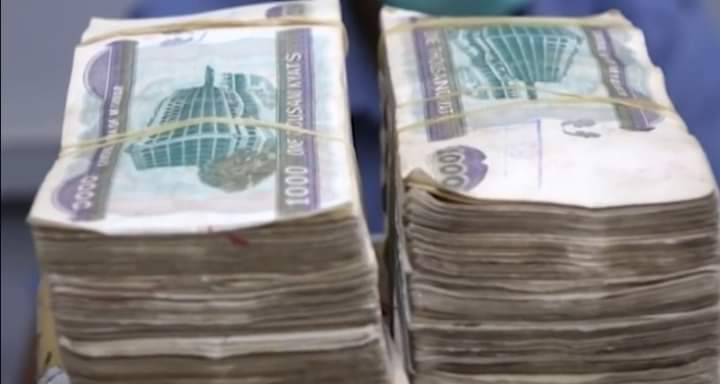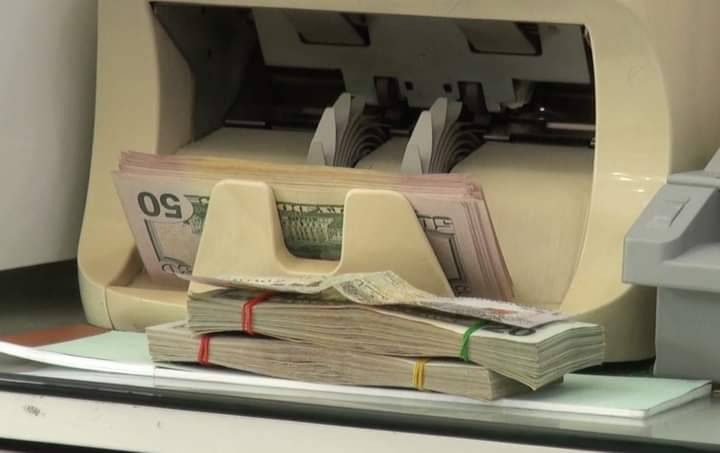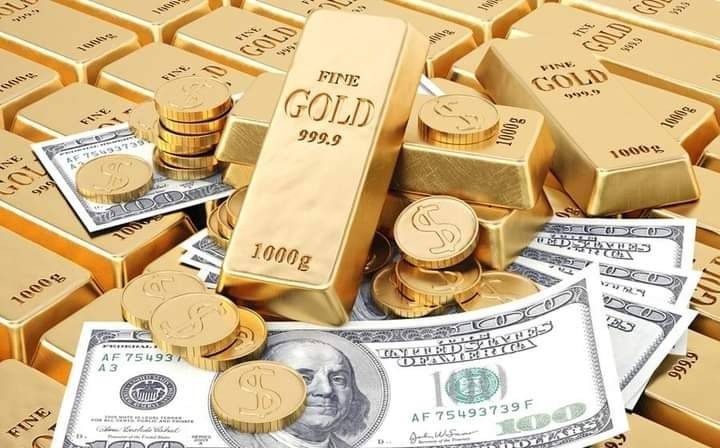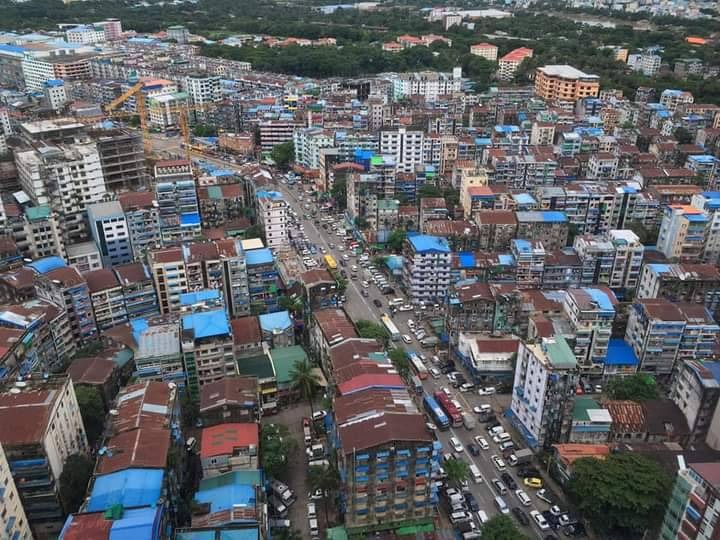The junta’s Ministry for Planning, Finance and Industry stated that the country’s Gross Domestic Product (GDP) grew by 3.2 percent after the first six months of 2022. It is expected to grow 3.7 percent in 2023. Local businesses have been affected by the political and economic crisis following the 2021 military coup in Burma. Foreign investment dropped as companies left the country in droves last year.
The World Bank report of Global Economic Prospects published on June 7, 2022. It excluded Burma from its list of countries in the East Asia and Pacific region for economic development. “[The junta] said the country’s economy is growing. But businesses are slowly shrinking with so many restrictions in importing goods. I don’t know why they said this after seeing what kinds of improvement. I mean, it is not okay to transport goods from one place to another. In my view, they only do violence by showing off their weapons,” said an import-export agent on the condition of anonymity.
Growing inflation rate
The Asia Development Bank issued a report in December 2022 stating that the inflation rate in Burma has risen to nearly 20 percent since the 2021 military coup. The inflation rate in 2020 was 7.3 percent. This proves the rate has increased dramatically.
“In theory, the rate should be under 10 percent, if possible under five percent is the best in the view of business experts. If the rate is over 10 percent, people especially in the basic level, government staff who depend on superannuation and people with lower incomes will be harmed,” an economist told DVB on the condition of anonymity.
“There was a budget deficit during the [National League for Democracy] NLD government because of the expense of COVID-19. But they didn’t print more notes [currency] as we, people said not so. Instead of that, they sold government bonds and people and banks bought them. But now, nobody buys them even if the junta sells those bonds. They even announced twice or three times about the bonds. They print more notes and [it creates] more inflation,” the economist added. Previous military juntas such as the State Law and Order Restoration Council (SLORC) and the State Peace and Development Council (SPDC), believed it could solve inflation by printing more bank notes.

Foreign currency crisis
A Central Bank of Myanmar statement on US dollars on April 3, 2022 shocked import-export agents. The CBM stated citizens with foreign currency income, including from exports, must be converted at the bank rate of 1,850 Kyat per dollar. “Since they converted a dollar with that rate, I didn’t do anything about export-import business,” an agent said. Following this CBM announcement, a junta spokesperson stated that it had reserved enough US dollars for the country. But there was no specific amount mentioned.
“They were forced to exchange shares owned by foreigners with Kyat. The announcement about pending the foreign loans borrowed by the domestic companies is very bad. I think they’re doing it as they’re in need of dollars,” the economist added. A report from the World Bank in 2020 said Burma’s foreign exchange reserve was $7.67 billion USD. However, it is unknown how much of this amount has been spent by the junta since the coup.

US dollar market
In 2022, the value of one US dollar reached a record high of over 4,000 Kyat. As a result, commodity prices and the price of imported goods rose. The CBM announced on Aug.30 that it would provide over US$ 200 million through the foreign exchange market in order to relieve rising prices of basic commodities due to the high price of imported fuel oil. Since then, the value of one US dollar dropped to 3,500-3,600 Kyat from 4,300-4,400 kyat last September.
The price of a liter of octane dropped to 230 kyat. The price of diesel dropped to 105 kyat. But commodity prices did not decrease. “Selling those dollars works for the short term. But how many they can sell in the future and how much do they have? For me, it can solve problems for a while. If they sell dollars as much as the market needs, the price of kyat will be stabilized. But they should discuss with the experts, otherwise, their statements make a joke for the people. People no longer believe in them as they release as they like,” the economist explained. In the last few months of 2022, the CBM raised the dollar exchange rate to 2,100 Kyat (from 1,850 Kyat). It also tried to fix the dollar price in the market. Currently, the price of one US dollar has dropped to under 3,000 Kyat.

Gold market
Depending on the foreign currency exchange rate and international gold prices, a tical of academy gold in Burma cost 1.85 million Kyat in January 2022. After eight months, the price jumped to a record high of 3.8 million Kyat. Last year, the price of domestic gold rose by almost 2 million Kyat. The Gold Entrepreneurs Associations in Mandalay and Yangon allowed the sale of 10 ticals of gold per person. This resulted in the gold price decreasing. “People want to buy gold if they can’t buy it in the market. If they can buy it, they don’t want it anymore. So, the associations sold the gold and the price dropped,” a gold merchant in Yangon said. On Dec. 31, 2022, the value of a tical of gold sold in the market for 2.6 million Kyat.
Automobile market
The price of automobiles almost doubled in Yangon in 2022. The junta banned the import of cars from overseas in September 2021, and the value of cars rose by a small percentage. According to brokers, this has never happened in the history of Burma. “Rich people monopolized the car market by buying many cars without caring about the prices. Then they stored them, as the US dollar and gold prices were higher that time and they wanted to invest their money in cars. Because of that, many people including brokers got in trouble,” a car broker said.
Property Market
The property market of 2022 was chaotic. “There was no normal price fixed by the real estate agents. People buy and sell with the prices they want. And selling and buying rates were high as well. For example, a family moved from Yangon to Mandalay and Burma to foreign countries. They sold their houses and invested in new places, but they did that quietly. So, in conclusion, it was chaos,” a real estate agent said. The rental prices for commercial use were also one and a half times higher than normal.
Foreign trading
Min Aung Hlaing told a meeting in Naypyidaw in October 2022 that the country had received a trade surplus of $35.51 million USD from April to September of the 2022 fiscal year. According to the data released by junta’s Ministry of Commerce, the export value was over $11 billion USD and the import value was the same from April to November of the 2022-2023 fiscal year. During the NLD government, the trade volume reached $34.35 billion USD for the 2019-2020 fiscal year.
“The Asia Development Bank calculated that the country’s economy rose to seven percent of GDP. The NLD government changed its policies and pushed the right path. The military council [junta] said there was no improvement during the NLD government but I don’t know how it said that. Economy during the NLD government declined a little bit due to the COVID-19 pandemic. But that situation has happened in other countries as well. The country’s economy became worse after the coup,” a business advisor said.
Min Aung Hlaing blamed the NLD government for the declining economy, and said he is trying to improve it. He told a meeting in August 2022, that the country will reach the middle-income level in the next five years if the country makes the effort. Two years since the military coup and Burma’s economy is collapsing. Forty percent of the population are under the poverty line, according to the World Bank.



